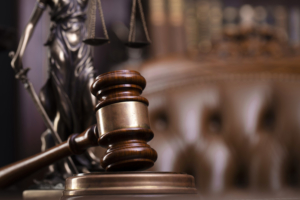An unlicensed North Carolina structural engineer’s expert testimony was recently thrown out because he did not hold a license to practice engineering in the state. This trained and educated engineer previously worked for a major chemical manufacturer under the “industrial exemption”. Not only was his testimony inadmissible, but he may also be charged by the North Carolina board of engineers for practicing engineering without a license, a Class 2 misdemeanor, which can result in up to $1,000 in fines and 60 days in jail.
The Federal Rules of Evidence state that a “qualified” expert witness is a witness who has knowledge, skill, education, experience, or training in a specialized field. It says nothing about licenses or certifications. There are some who may view Forte’s position of using only state-licensed forensic structural engineers as unnecessary on the basis that a person can be “qualified” as an expert under the federal rules of evidence’s definition. It is important to point out, however that state licensing is important beyond the softly worded Federal Rules of Evidence, if for no other reason than because structural systems and building materials vary substantially based on a region’s:
- Soils
- Weather Patterns
- Average Temperatures
- Variance in Temperatures
- Relation to Sea Level
- Local Codes
To illustrate the point, consider that a structural engineer licensed in the state of Alaska attempts to provide his or her expert opinion on expansion cracking on a tile roof in Florida, or alternatively, a structural engineer licensed in Florida opining on the effects of thawing permafrost on a foundation in Alaska.
So, the moral of the story is simple. When a dispute arises, state licensing matters. Providing an engineering opinion as “an engineer” is considered the practice of “engineering”, whether that opinion is provided in the course of a routine structural damage investigation or acting as an expert witness. It only takes one aware opposing attorney to discredit an expert’s credentials and their testimony, so clients please err on the side of caution. To be safe, call Forte. We offer multiple state-licensed structural engineers in every state in the contiguous US, Alaska, Hawaii, Puerto Rico and the USVI.




